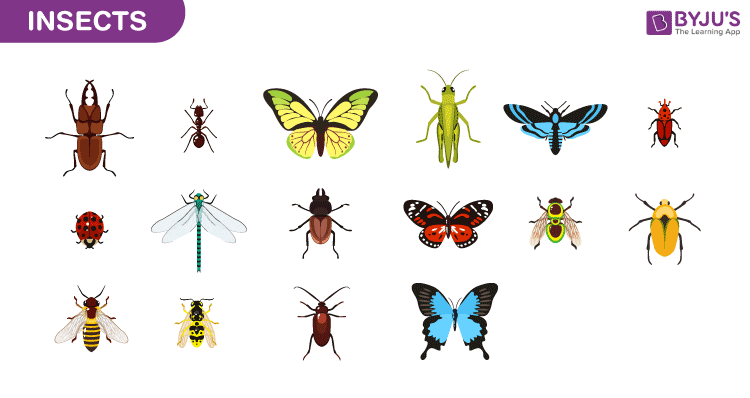There are more than billions of different species of insect that have been described to date. These insects have lived on earth for more than 400 million years and are the most abundant group of animals in the world. They are present in almost every habitat and play a significant role in agriculture, biodiversity, evolution, ecology etc.
Different insects have different characteristic features and all are grouped into a Kingdom: Animalia and Class: Insecta.
Table of Contents
What is Entomology?
Entomology is the branch of zoology, which is mainly involved with studying insects, their characteristics, general anatomy, morphology and their contributions to biological diversity and a variety of other fields of science.
Scientists who study insects and their structure, different parts, functions, and other features are called Entomologists. William Kirby is called the father of entomology based on his contributions to the field of Entomology.
Aristotle – the Greek philosopher and scientist was the first person to present the anatomy of Insects based on his groundwork for modern entomology.

Significance Of Entomology
Insects are found all around us. No matter where we live, and what we do. We all come across these insects. Some are poisonous and cause harm, while some are non-poisonous and do not bite or cause any harm to humans. Similar to humans, there are few insects which cause harm to both plants and animals.
Entomology mainly deals with the scientific study of insects. Entomology is derived from the Greek word- Entomon meaning notched, also referred to as the body segments found in all insects. The study of entomology also deals with the study of the relationship between insects, humans, food, biological diversity, pharmaceuticals, our environment, and other fields of science.
Application Of Entomology
Apart from studying the anatomy and physiology of insects, entomology is widely used in many other disciplines, including evolutionary biology and medical research. It helps agricultural entomologists to protect valuable resources from insect pests and also in the studies of biodiversity. This is the area concerned with physiological and population processes. Insect Drosophila melanogaster has been widely used as a model species in genetic studies for years.
Listed below are a few of them.
Environmental Science
Insects are a vital part of forest biodiversity and they are particularly sensitive to changes in the climate and the patterns and seasons of regional flora cover. Here entomology provides evidence for general forest health, effects of deforestation, and continuous ecological issues such as flooding and drought. They can tell us much about the types of trees, shrubs and flowers that grow there and also play a significant role in the pollination process.
Forensic Entomology
Surprisingly, different insect species sometimes play a part in criminal investigation and even be included as part of the evidence. Forensic entomology is the scientific science of investigations by analysing evidence from arthropods to aid in forensic investigations. Through Entomology, investigators can learn about:
- A body’s season of death.
- Understanding human remains.
- How long has a body been dead?
- How long has the body been exposed to the elements before discovery or being buried?
Entomology, the scientific study of insects and a branch of zoology is mainly involved with the study of insects along with their relationship to the environment, humans, and other organisms. This discipline has great impacts on human lives, agriculture, veterinary medicines, biodiversity, genetics, environmental science, pollination and a lot more.
Stay tuned with BYJU’S to learn more about entomology, its branches, its importance and other related topics at BYJU’S Biology.

Hiii
Sir what is the ornithology
Ornithology is a branch of zoology dealing with the study of birds.